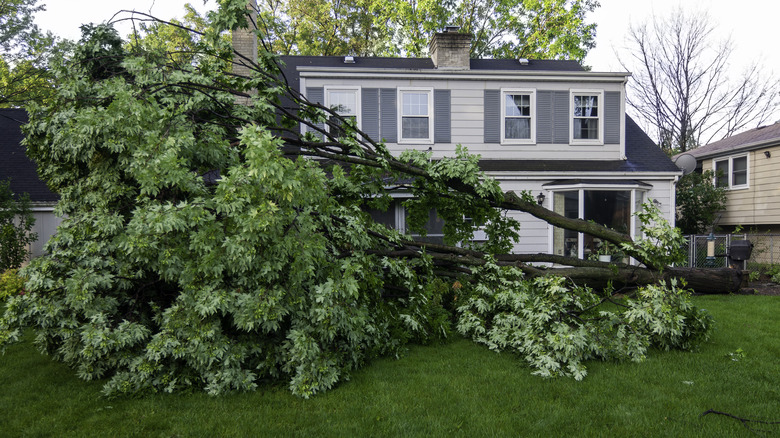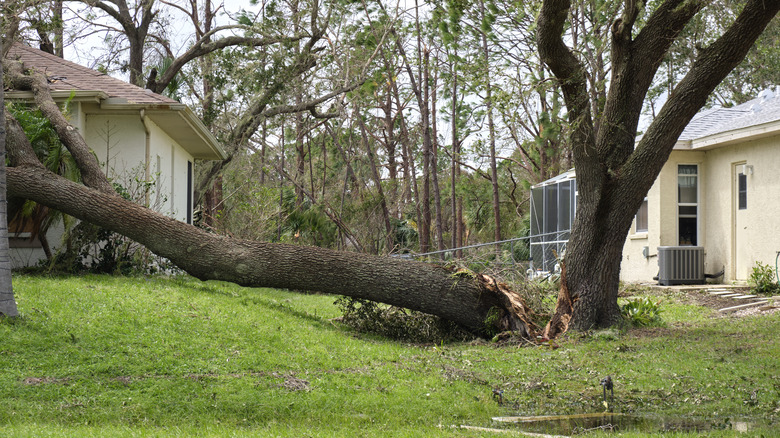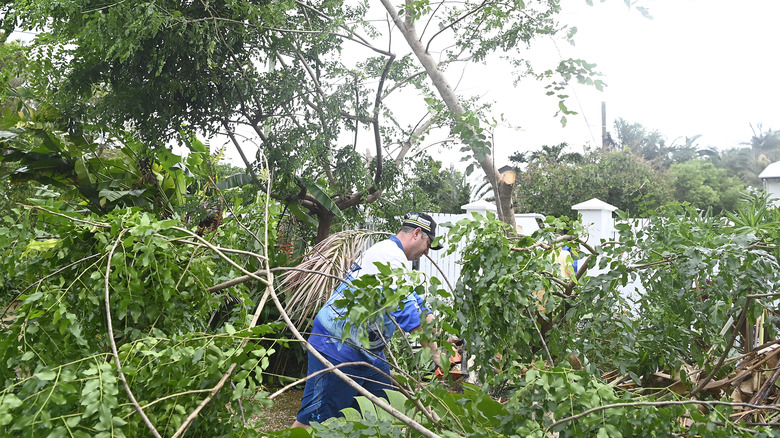What To Do If A Neighbor's Tree Falls Into Your Yard
Discovering that a neighbor's tree has fallen into your yard can be an unsettling experience. It's a scenario that can feel like a tricky puzzle, especially when it comes to figuring out who's responsible for what. However, the responsibility for a fallen tree and any damage it causes isn't always cut and dry. A few key factors come into play, and understanding these can help clear up a lot of confusion. First and foremost, your initial concerns should revolve around safety and property damage. Is anyone hurt? Has the fallen tree damaged your home, fence, or other structures? Once you assess the immediate safety concerns, the next step is to figure out who is responsible for dealing with the aftermath. This is where things can get tricky. It's not just about who cleans up the mess; it's also about who bears the financial burden of any damages. The situation becomes more complex when considering factors such as the tree's health before it fell, maintenance records, and the circumstances under which it fell.
In this context, it's crucial to be informed about your rights and responsibilities. Knowing how to navigate the aftermath of a tree falling into your yard, especially from a neighbor's property, can save you from unnecessary stress and potential legal conflicts. The steps you take in the immediate aftermath are pivotal in ensuring a smooth resolution to an otherwise challenging situation.
Who is responsible for fallen tree damage
Trees can fall without warning and for various reasons, such as aging, disease, or extreme weather conditions. If a tree falls due to natural events like a fierce storm or an unexpected lightning strike, it's typically seen as an act of nature or an "act of God" in legal terms. In these situations, you might be surprised to learn that you're responsible for whatever part of the tree lands on your property.
Now, what if the tree was in a sorry state before it decided to take a dive into your yard? This is where things get more complicated. If your neighbor's tree was visibly sick, dying, or dead, and they did nothing about it, the responsibility might shift to them. Proving negligence is the key factor here. If you can show that your neighbor knew (or should have known) about the tree's poor condition and ignored it, they could be on the hook for any damage caused by its fall. This is where having an arborist's report or photos of the diseased tree before its fall can really come in handy. But remember, tree laws can vary quite a bit depending on where you live. Some states have specific rules about trees near property lines or how to handle tree trimming. So, it's a good idea to familiarize yourself with local ordinances and laws about tree ownership and responsibility.
Steps to take if a neighbor's tree falls in your yard
Once any immediate dangers are out of the way, you need to document everything. Whip out your smartphone or camera and start snapping pictures of the fallen tree, focusing on where it lies and any damage it's caused. Next, it's time to loop in your neighbor. Approach this chat calmly. Let them know what's happened and share the evidence you've gathered. The next call? Your insurance company. They're the ones to guide you through what's covered and what's not. Every policy is different, so understanding your coverage is vital. They should walk you through the claims process, which is where those photos you took will come in handy. In many cases, you'll need to get the tree removed, and that's usually a job for professionals. Look for a licensed, insured tree removal service. Remember, it's not just about getting rid of the tree; it's about doing it safely and efficiently.
Keep a meticulous record of everything: conversations with your neighbor, dealings with your insurance company, and receipts from the tree removal service. If things get a bit tangled legally or with insurance, these records will be your best friend. And finally, if there's any dispute or significant damage, don't hesitate to seek legal advice. A professional can offer guidance tailored to your specific situation and local laws. So, there you have it. It's a mix of practical steps and smart planning. Stay calm, stay organized, and you'll navigate through this leafy predicament just fine.


